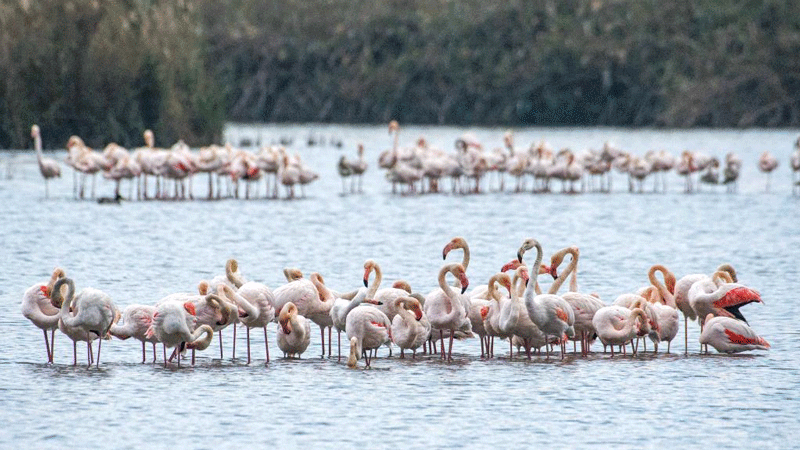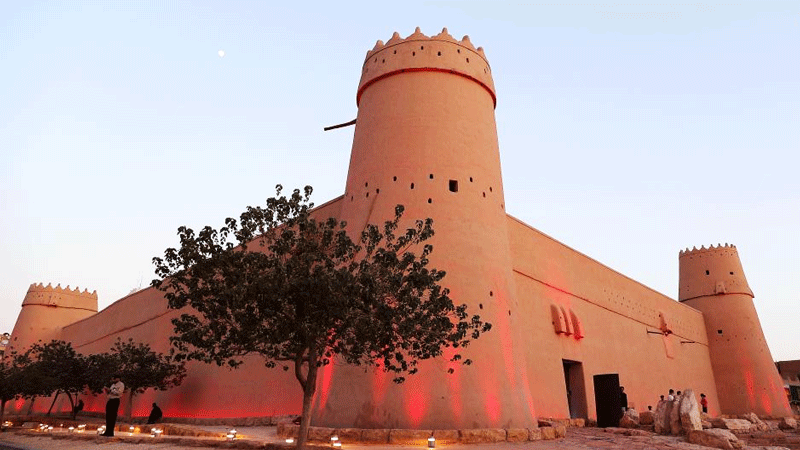Chinese researchers “plant” corals on seabed to restore marine ecology
Chinese coral researcher Chen Hong, who has dedicated over 30 years of his life to researching corals, has a plan for growing 1 million of them.
In 2003, Chen established the Hainan South China Sea Institute of Tropical Ocean (HITO), a non-profit provincial-level scientific research institution in south China’s Hainan Province for the protection of coral reefs and marine ecology.
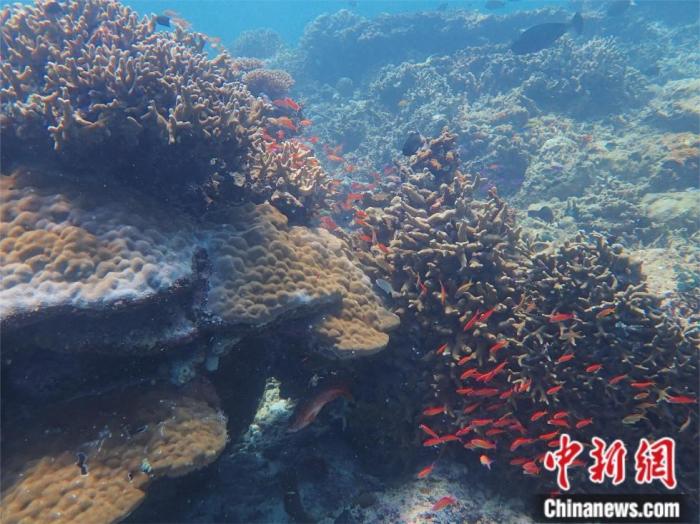
Photo shows corals on the seabed. (Chinanews.com/courtesy of the interviewee)
Coral reefs cover about 0.2 percent of the sea area and provide habitats for 25 percent of marine creatures. Known as the “rainforests of the sea,” they help protect the seashore from erosion, but are themselves fragile. Due to climate change and human activity, bleaching is occurring and the corals will die as a result of rising sea temperatures and other factors.
As sea temperatures rise, zooxanthellae parasitic plants that are vital for the corals’ survival are expelled, causing the coral to turn white, according to Chen, head of HITO.
Chen began researching corals after the discovery of damaged corals in Sanya city, Hainan. Starting from scratch, Chen and his team spent nearly 20 years exploring technologies for restoring and protecting corals.
To help them recover, Chen decided to “plant” corals under the sea. He is one of the first experts to carry out research on coral cultivation in Hainan.
Chen first bred “coral seedlings” in a lab, and then transplanted them to the seabed. In 2011, HITO started using artificial coral reefs to transplant coral seedlings.
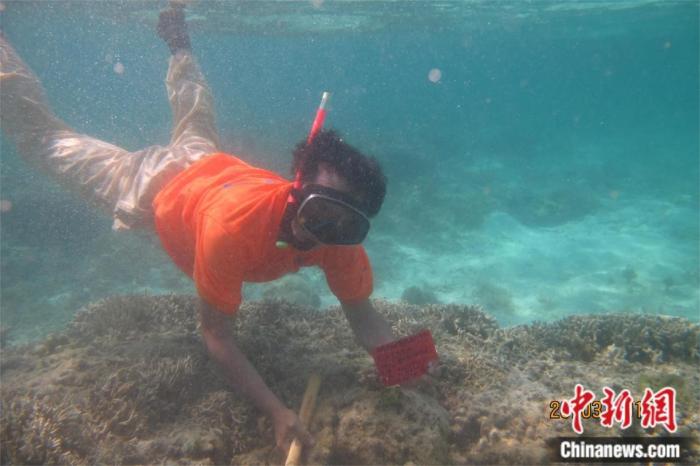
Chen Hong works on the seabed. (Chinanews.com/courtesy of the interviewee)
However, growing corals on the seafloor is no easy matter. Researchers have to bind the coral seedlings in a net, dive down to the seabed and then pin the net on rocks.
After one week of transplanting, researchers must conduct regular checks under the sea to make sure that the coral seedlings are not swept away by waves.
In order to check on the growth of the corals, Chen often dives into the sea and stays under water for hours.
In 2016, HITO launched a program to plant 1 million corals. “I aim to plant 1 million corals under the sea. We have planted about 333,000 corals so far,” Chen said.
Three years later, Chen built China’s first coral germplasm bank, where more than 150 species of corals have now been collected.
Researchers from other Chinese research institutions have also devoted themselves to planting corals on the seabed and explored different restoration techniques according to the conditions of different coral reefs in recent years.
Huang Hui, a researcher from the South China Sea Institute of Oceanology under the Chinese Academy of Sciences, said that China is leading the world in the field of coral research.
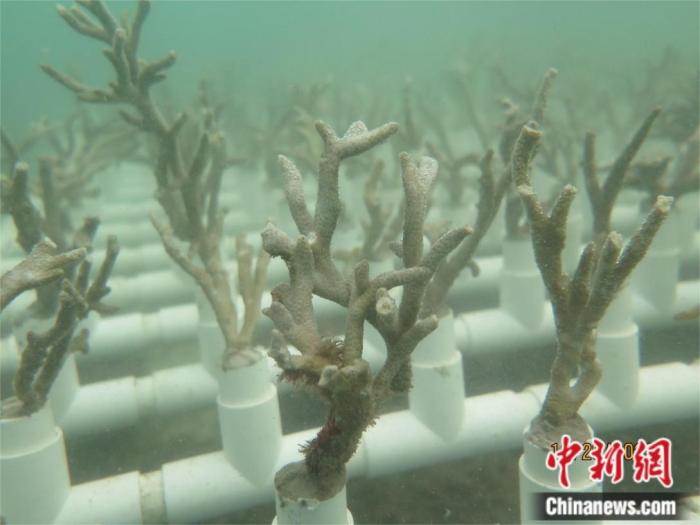
Photo shows coral seedlings cultivated by the Hainan South China Sea Institute of Tropical Ocean in south China’s Hainan Province. (Chinanews.com/courtesy of the interviewee)
Wang Youshao, a professor from the South China Sea Institute of Oceanology, noted that China has made progress in research into three typical parts of marine ecosystems - coral reefs, mangrove forests, and seagrass beds. The country has advanced the restoration and protection of the marine ecology, which is of great significance to safeguarding homeland security and protecting marine biodiversity.
Photos
Related Stories
- Bare mountains turn green again through ecological restoration in SW China's Sichuan
- Flood-tolerant plants restore ecosystem on mega isle of Yangtze River
- Migratory swans fly to C China's Yellow River wetland to spend winter
- Rare wild animals found at Sanjiangyuan National Park
- Mandarin ducks enjoy beautiful scenery in SW China’s Chongqing
- Silver pheasants, Indian muntjac seen in same footage in SW China’s Yunnan
- Sound ecological environment contributes to Lishui's progress in aquatic sports
- Harmony hailed as key on path to modernization
- Blooming ottelia acuminata floats on Jianhu Lake in Yunnan
- Global Gibbon Network established in S China's Hainan
Copyright © 2022 People's Daily Online. All Rights Reserved.








